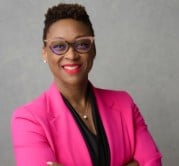Remembering the man, continuing the movement

As the commemoration of Dr. Martin Luther King, Jr holiday is approaching, citizens across the nation prepare to celebrate. The MLK holiday recognizes the iconic civil rights leader’s contribution to justice and equality. This year also marks the 30th anniversary of the MLK Day of Service. The theme for 2024 is “It Starts with Me”. The annual observance not only honors Dr. King’s legacy but emphasizes the importance of ideas he fervently championed such as collective action and service to all. Dr. King’s dream is often narrowed to imply he was only concerned with racial equality.
However, his opening remarks during the memorialized “I Have a Dream” speech, clearly indicates his broader focus which included economic justice and empowerment. If asked, most people could recite the famous quote, “I have a dream that my four little children will one day live in a nation where they will not be judged by the color of their skin but by the content of their character”. Although the passionate speech painted a vivid image of an incredibly inclusive society, it also mentioned the systemic injustice of the economy. In an analogy Dr. King implies the United States has written African Americans a bad check. Dr. King declares that “…We refuse to believe that there are insufficient funds in the great vaults of opportunity of this nation”. His point in highlighting this analogy is that America’s economy has left African Americans and the poor behind.
As we remember the man, to honor him, we must also continue the movement. His was the Civil Rights Movement, ours is the Credit Union Movement. It is imperative to draw a parallel between his dream, particularly on economic equality and the responsibility credit unions bear in fostering financial equity. This reflection serves as a poignant reminder of the interconnectedness and intersectionality between the yet unrealized dream of Dr. King and the ongoing relentless pursuit we must have of an economically equitable society.
The man
Dr Martin Luther King, Jr lived his life in service to his family, community, ethnic group, nation, and the Civil Rights Movement. He exemplified servant leadership, dedicating the whole of himself, in service of others. His commitment to justice, equality, and activism showcased a profound since of duty. Dr. King’s leadership focused on empowering and uplifting others. Likewise, credit unions as financial cooperatives, should expound upon that servant leadership mindset and approach. This involves prioritizing the needs of members over what is convenient for the credit union. Members should see and feel a sense of connectedness because the actions of the credit union foster a sense of community. Credit unions should aim for the greatest good while working cooperatively with each other, with communities, and with members to harness shared responsibility for the mutual benefits of financial empowerment and interconnectedness.
We were uniquely designed for this type of service. Thus, we must provide accessible financial services, promote financial literacy, and ensure fair and inclusive practices for members and employees alike. Credit unions can fulfill our role in service to our membership by mirroring the ethos of servant leadership embodied by Dr. King. I can all but hear you say, “We serve our members”. But do we? We may be serving, but who? But how?
In his “I Have a Dream” speech, Dr. King so eloquently articulated his vision of a future where there was equality despite differences, justice prevailed, and people were just people. Within this vision, he mentioned economic equality, expressing the urgency of the moment to address the disparities that plague our society now. He said, “…We have also come to this hallowed spot to remind America of the fierce urgency of Now. This is no time to engage in the luxury of cooling off or to take the tranquilizing drug of gradualism.”
This call for economic equality aligns with the focus credit unions should have on creating financial equity. Credit unions are the only financial institutions specifically created to provide financial access to all (those of modest means, those situated in financial deserts, those essential to maintaining our agricultural eco system, those with a brilliant small business idea, those who have honorably served our county, those who have dedicated their lives to public service, and all who are underserved or marginalized by the financial system).
Therefore, we are uniquely positioned to establish and promote financial inclusivity and fairness. We can work toward providing more affordable and more accessible service, offering opportunities for economic participation and empowerment, and actively addressing the systemic barriers that contribute to the growing wealth gap and financial inequities. Unfortunately, time is not on our side. The wealth gap is growing. Technology is advancing at a rapid pace and passing us and the most vulnerable in our communities by. Development issues plague the communities that credit unions are designed to serve.
There is an urgent need for the credit union movement to fulfill its mission to serve all members. We cannot fall prey to traditional (the way we’ve always done it) service that no longer meets our members’ needs. We must reimagine our approach to service. Have we become overly comfortable? Are we keenly focused on current member needs? Do we still have a true heart to serve all? Are we really who we say we are, People helping people? Or just some people?
The movement
During the Civil Rights Movement, Dr. King’s accomplishments were numerous. Leveraging his fidelity to his principles, he led campaigns for equality that focused on eradicating poverty and the associated injustices. He championed the movement. None of his accomplishments came easy. He was not always liked or endeared. Nevertheless, his life remained one of service. He served despite the difficulties and dangers of the journey.
Throughout the course of his life, he served in the face of adversity and discomfort. He served even when it was the unpopular thing to do. He made no excuses, took no shortcuts, and did not compromise his principles. In our modern-day culture, institutions, like credit unions, that were established to serve seem to have lost their way. Have we started to cater to what is easiest to do instead of what is best? Are we focused on avoiding turbulence? Are credit unions only doing what is not controversial? Do we only take the less difficult path? But service is never easy. Service, more often than not, is difficult. Inherent to the Civil Rights Movement and the credit union movement is a focus on the notion that everyone deserves access to the American dream. Like the work of Dr. King, the credit union movement embraced equity and justice long before these values became trendy and long before these terms took on today’s political context. Dr. King once said, “No work is insignificant. All labor that uplifts humanity has dignity and importance and should be undertaken with painstaking excellence.” Credit unions are uniquely positioned to have an immense impact by providing access to financial education and resources critical to combating generational poverty and promoting the upward mobility of historically disadvantaged individuals.
The work of credit unions is significant and should be undertaken with painstaking excellence. The parallel between the work of Dr. King and credit unions lies in our shared commitment to breaking down barriers and fostering equality, both in access to economic opportunities and in the realization of a dignified financial life for all. Credit unions contribute to realizing Dr. King’s dream of a more economically just and inclusive society. How? By championing financial education. By fostering community development. And by ensuring equitable access to financial resources. These actions are the elements of service that make the credit union movement unique and poised to continue transforming our society. As we prepare for the MLK Day of Service and in keeping with the theme “It Starts with Me”, let us be reminded to charge forward with fearless and fierce fervor in pursuit of equitable service for all.





